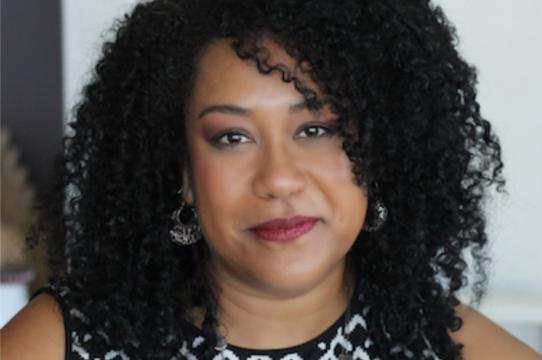Writer, director and new play developer Lisa Marie Rollins lived in the Bay Area for over 20 years and worked on new plays at many theaters there, including Berkeley Repertory Theatre, American Conservatory Theater, Shotgun Players, and Magic Theatre.
Now Rollins, who joins us from the Theatre and Dance department at Colorado College in Colorado Springs, says she’s happy to be back in California and to join the UC Santa Cruz department of Performance, Play & Design as Assistant Professor. There are many reasons, starting with the department’s name.
“There is an importance to this shift from historically constructed ways of thinking about theater and performance as being the only kind of theater that belongs on our stages. The move to call the kind of inquiry we (faculty) and our students are doing “performance and play” is the way the field should be going,” she said. “We are providing students access to experimentation, interrogation and inquiry time, rather than simply, ‘Let’s perform Shakespeare’ and you’ll learn everything you need to know about drama.’”
Rollins’ full title is Professor of Playwriting and Black drama. She’ll be teaching Playwriting 1 and 2, and she plans to offer a course focused on Black Women and Diasporic performance practices.
Rollins has two M.A.s — one in Cultural Studies from Claremont Graduate University and one in Africa Diaspora Studies from UC Berkeley where she focused on black women’s literature and writing communities, diaspora, worldmaking and the body. She also brings her extensive artist work to the UC learning community.
Her scholarly background is central to the ‘why’ of her work across the nation in professional theater, she says.
“That research reinforced the fact that I’m operating within a lineage of Black feminist and women of color feminist praxis, and that is where I stand, how I move and how I create,” she said. “It’s all the women you would imagine that inform my work — Sadiya Hartman, bell hooks, Gloria Anzaldúa, Lorraine Hansberry, Alice Childress, Cherie Moraga, Octavia Butler, Nalo Hopkinson, Ruth Wilson Gilmore — all of these women and femmes who were thinking about how Black women and women of color inhabit and disrupt space, how they can heal, and then thrive in colonial circumstances while providing visionary paths for us to think about how we want to imagine and concretize our futures.”
Rollins' move to professional theater from a literary foundation has been a lifetime of evolution. She has been writing poetry since she was seven, has a book of poems, and then years ago in graduate school, began to explore playwriting. This led her to a workshop where she wrote a solo show and its popularity had her touring around the country. “My shift to playwriting and directing came after that work as a solo performer and working in the solo performance community. After the run of that show, I realized I was really interested in ensemble dynamics, and how dialogue and silences and all the things we don’t say to one another can be displayed on the stage and through embodied work,” Rollins said. “I also recognized my understanding of structure, storytelling, the dramatic arc and the racialized biopolitics of worldmaking meant I had something to offer American theater.” Her work as a dramaturg and director across the country emerged directly from the desire to be in development rooms with playwrights making new plays.
Currently Rollins is a resident artist with San Francisco’s Crowded Fire Theater and with funding from the Wallace Gerbode Foundation is in development with her new play, KARA, about a black woman whose body begins to mutate. Kara focuses on the process of her discovering the origins of this mutation, all while contending with a love interest who may hold the secret to unlock this mystery.
“Kara’s story is centered on how capitalism and the mechanization of our work world separates us from our humanity and from one another, and doesn’t allow us deep, intimate connection, and wants us to ignore our ancestral lineages” she said. “I’m interested in exploring how we can find one another again, even as our bodies make desperate attempts to adapt under violent and inhuman circumstances.”
Summer 2024, Rollins will be directing a new play by acclaimed San Francisco writer Star Finch, Shipping & Handling (produced by Crowded Fire) which she has been part of the development process since 2020. She has research leave in the fall, and has started work on her book offering to the field, focused on Black diasporic women’s worldmaking and performance practices.
10/2/2023


